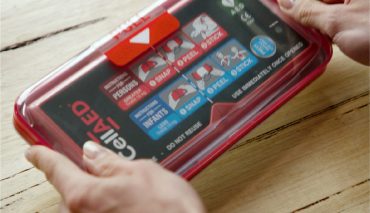Would you know how to save a loved one’s life?
Fewer than 1 in 5 people in the UK would know how to use a defibrillator in the event of a sudden cardiac arrest, according to new research.
The research also revealed that other barriers holding people back from using these life-saving devices include a lack of confidence and a fear of causing further harm.
Ironically, these fears could be having fatal consequences, with out-of-hospital cardiac arrests claiming the lives of 150 people in the UK every day, making it one of the nation’s biggest killers. Just one third of UK adults would be able to recognise the symptoms of a cardiac arrest.
Adding to this concerning picture, the study found that the cost of conventional AEDs is another significant barrier.
Headline research findings
- Only 20% of people would know how to use an AED in an emergency
- 62% of people do not know where their nearest AED is when at home
- 36% of people do not know how to recognise if someone is having a sudden cardiac arrest
- 53% of people would not know how to save a loved one’s life if they had a sudden cardiac arrest
- Only 27% of people have had AED training
- The main thing holding people back from using an AED is a lack of training (43%); followed by a lack of confidence (41%); and a fear of causing further damage (35%)
- The main barrier to purchasing an AED is cost (42%); followed by being worried about how to use it (27%)
How CellAED® can help
At up to one tenth of the price, size, and weight of conventional AEDs, we’ve created CellAED® to increase access to defibrillators and overcome barriers to their use.
The world’s first personal, portable defibrillator uses game-changing technology, designed to improve the chances of surviving a sudden cardiac arrest.
Alongside our mission to make affordable, easy-to-use AEDs available in homes and workplaces across the UK, we’re also campaigning to educate people around CPR and defibrillator use, and to raise awareness of how to recognise and respond to sudden cardiac arrest.
About the research
The UK research was carried out in February 2022 by Vitreous World in partnership with Rapid Response Revival. The sample is composed of 2,000 UK adults that represent the national average age, gender, locality, ethnicity, sexual orientation and disability.
RELATED ARTICLE: World’s first personal defibrillator launches in the UK



